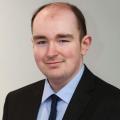
Winchester's MP has raised concerns over the BBC's plans to cut local radio services.
Steve Brine highlighted the impact the cuts would have with BBC Radio Solent currently attracting a weekly audience of more than 256,000.
The BBC plans to move £19million into digital services including its news websites. This would mean money is taken out of local radio, due to the license fee being frozen for two years at £13 a month.
The proposals would see Solent's reach be limited to Hampshire, Dorset and the Isle of Wight from 6am-2pm weekdays, losing eight hours each weekday and the entire weekend coverage. From 2pm Solent's output will join other local areas.
Speaking in the House of Commons on November 1, Mr Brine said: “BBC Radio Solent, which my constituents would listen to, at weekends we think there will be no purely local output at all. Not even breakfast, except only potentially sport commentary. That is decimation. We hear about these regional investigative hubs in place of truly local radio.
“Will the minister ask the BBC and will she give us, the House, her opinion as to whether that is what the license fee payers, the BBC's customers, actually want, because I very much doubt that.”
Julia Lopez, the Minister of State for Digital, Culture, Media and Sport, said: "The BBC is a public service broadcaster and it's there to deal with types of journalism that is not covered adequately by the markets.
"So, I think it's very important to ask some of these questions, because this is why the BBC has support and if it's not delivering that kind of distinct local and regional content then we have to ask them serious questions."
READ MORE: Michael Ball welcomes Children in Need hero from Wellow to his BBC Radio 2 show
Speaking on BBC Radio Solent on Wednesday November 2, Mr Brine said: “On the committee for Digital, Culture, Media and Sport, we have been talking about local journalism and the future of journalism. It's clear there is a lot of support for public sector broadcasting in this country. While there are alternatives, none of them are preferred to the status quo.
“While the BBC is talking about 11 regional investigative teams, I would ask what is the evidence that is what your listeners want? What I think they get from BBC local radio is truly local radio. That is the USP of BBC local radio and if you take that away then you can legitimately ask yourself, what is the point?
“There is no comparison with Netflix. They don't do news or local traffic. I don't think many of your listeners are demanding a rise in their fixed costs right now, so I think it is right to peg that at this time.
“But if the public say that would pay more for these services, then that's a conversation to be had. Although what we're talking about here is a valued bit of a massive BBC output, it really is the jewel in the crown.”



Comments: Our rules
We want our comments to be a lively and valuable part of our community - a place where readers can debate and engage with the most important local issues. The ability to comment on our stories is a privilege, not a right, however, and that privilege may be withdrawn if it is abused or misused.
Please report any comments that break our rules.
Read the rules hereLast Updated:
Report this comment Cancel